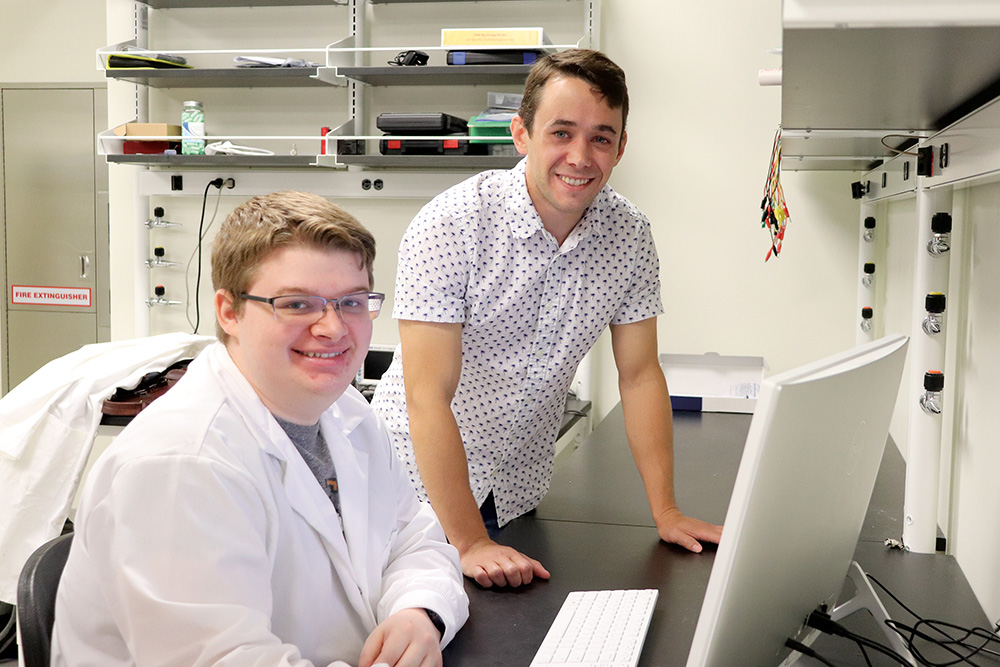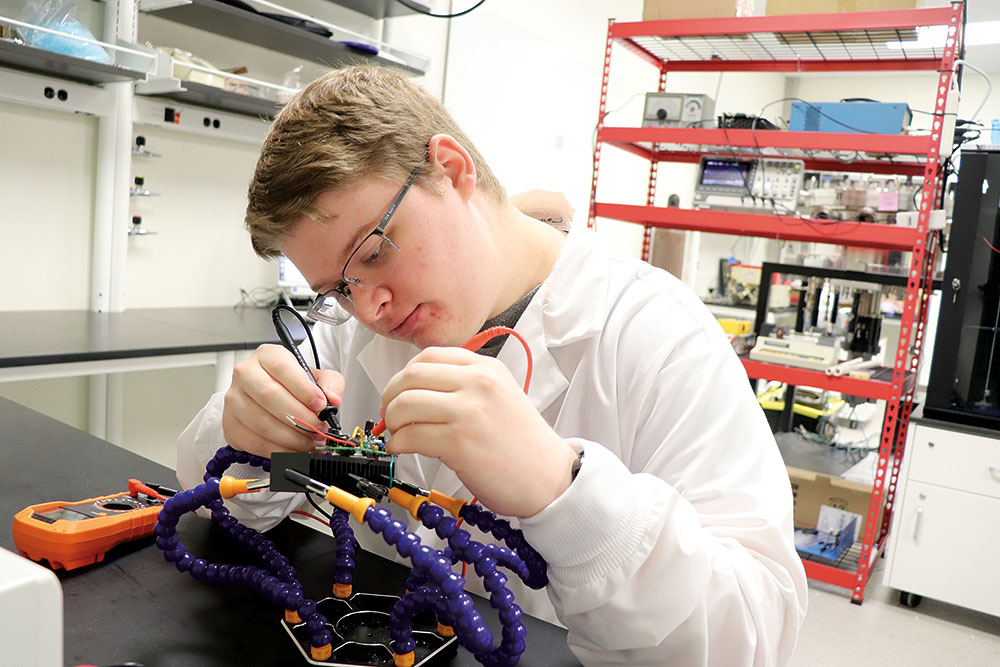
Jacob Clark, left, and William Fitzhugh
American Nanotechnologies, Inc. (ANI) is quickly approaching a tipping point for tech startups: earning revenue for the first time. “Our partnership with the Center for Materials Processing is, well, at the center of that,” said William Fitzhugh, the startup’s founder. “We’ve gotten the most from our partnership thanks to Jacob Clark, our undergraduate research assistant.”
ANI specializes in a new, cost-efficient process to purify carbon nanotubes for use in semiconductors. Carbon nanotubes offer game-changing possibilities for flexible electronics and 5G telecommunications. To date, however, producing a pound of this material could cost $300,000,000. For obvious reasons, carbon nanotubes have not gone commercial. Fitzhugh aims to change that.
In 2019, Fitzhugh earned a two-year fellowship with Innovation Crossroads, the entrepreneurial research and development program at Oak Ridge National Laboratory. That program brought him to East Tennessee and introduced him to University of Tennessee researchers and facilities.
“The Center for Materials Processing was perfectly positioned to help us. We didn’t have funds to hire, but they gave us access to a high-caliber engineering student by funding a research position,” Fitzhugh said. “Originally, we desperately needed elbow grease, but our partnership has gone above and beyond that. Jacob Clark is a third arm for me. He’s helped with things that will ultimately get us to market faster.”

Clark, a senior in the UT Materials Science and Engineering Department, has worked with ANI for the past year. He was intrigued when CMP faculty first told him about the research. “‘Carbon nanotubes’ is a buzzword for me—it’s cool, exploratory science,” he said.
Clark’s responsibilities include running spectroscopy purity analyses on ANI’s carbon nanotubes. “Will is a great mentor. He’s taught me a lot about nanotubes that I wouldn’t have gotten until a 400-level course,” Clark said. “In a classroom setting now, I think I’m on the fast track to seeing the end goal of the theoretical knowledge—because I’ve already been in the lab, which is the application.”
Clark has been investigating grad school and research careers. “My experience in the lab has definitely given me insights into what’s coming next. It’s knowledge of how a lab actually runs, plus Will has told me insights about getting into a grad school program and what it’s like to do research there.”
Over the summer, Clark added another valuable skill to his resume: programming the control system for ANI’s nanotube separation process. “Coding is the most frustrating but satisfying thing ever,” Clark said. “I quickly learned that it makes a lot of things easier if I can understand code and the inner workings of equipment on the software level.” It could also give Clark a competitive edge in his academic and professional career.
Clark’s programming work is key to making ANI’s process modular. The modular design, in turn, will play an important role in helping ANI expand its output and bring down the cost of processing the nanotubes.
“Each module we add to our system will provide more power and create a bigger electric field to filter particles,” Fitzhugh said. “Once we reach a couple hundred watts, we’ll be able to sell into the research market—our starting point.”
“By doing this in an economical way,” he said, “we can build a supply chain people have wanted to commercialize for decades. We have the potential to breathe fresh air into electronic devices developed over the last 15 years that could be transformative. And we can take the first pass at new devices, like sensors to detect explosives or even viruses. No incumbent materials can do that.”